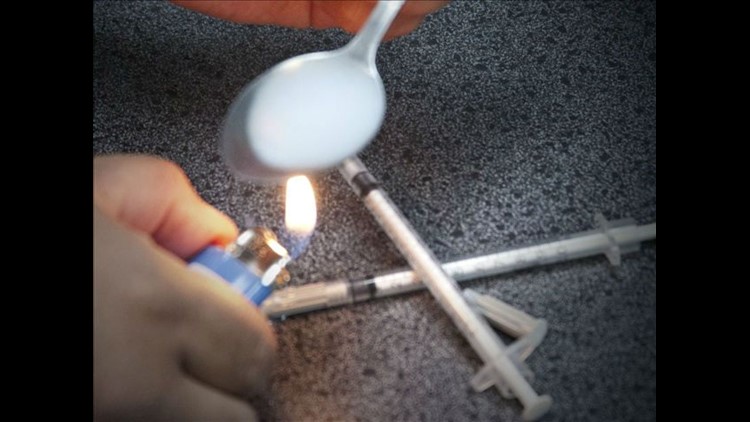

(Toledo News Now) - Being a foster mom to babies born addicted to drugs is Melissa Simmons Smith's life every day. And some days are much harder than others.
"We did take care of one little boy. He was incredibly drug exposed," Melissa says. "He was so stoned in utero he never moved. We cared for him for ten months and then he passed away."
Smith has cared for ten babies in the past seven years. "Your heart breaks for them—you watch them cry, tremor and vomit." Despite the uphill battle in caring for these children, Smith says she is a mother who's first priority is to care for the children who come into her home. But the situation is dire. "I've only taken care of one healthy baby," she tells us. "The nine other babies were affected by opiates, heroin and/or alcohol."
According to Lucas County Children Services, in the past year there's been a significant increase in babies born addicted to opiates. These high-risk newborns are born to mothers who used heroin or took powerful painkillers like Oxycontin while pregnant. These infants spend their first months of life in heavy withdrawal, a condition called Neonatal Abstinence Syndrome (NAS). The most dangerous problem that comes with this condition is seizures. They can be deadly.
That's where the methadone comes in.
Methadone, a synthetic opiate, is used to treat infants just as it's used to treat adults because it alleviates the symptoms of opiate withdrawal. It can be the difference between life and death for some, however, effects on development long-term are currently unknown.

Just about a year ago, the issue of treating and caring for opiate-addicted babies started to grow out of control. Dean Sparks, Executive Director of Lucas County Children Services, says out of the approximately 500 cases he deals with in northwest Ohio, 99 of them concern opiate addiction.
Opiates' hold on Ohio has now caught the attention of Governor John Kasich. He hopes to combat it with a cabinet action team headed by Orman Hall. The group Maternal Opiate Medical Support (M.O.M.S.) wants to improve medical outcomes and reduce the cost of care for this problem - but their fight is just beginning.

The long term prognosis for these children is unclear. The American Academy of Pediatrics says long-term morbidity from neonatal drug withdrawal remains unstudied. They say that few studies have followed drug addicted children past the first few years of life, and the neurological effects of opioid withdrawal during crucial stages of development are still unclear.
Foster parents like Smith are hopeful law enforcement and state agencies will work aggressively to slow the cycle of addiction, while she and many other families watch over its victims. "It's about the kids," she says, "you have to remove yourself because if you don't it's a terrible institution."
[if gte mso 9]>
[if gte mso 9]>
Mobile users, click on the "Video" button in the app to watch this story. Download our app here.



